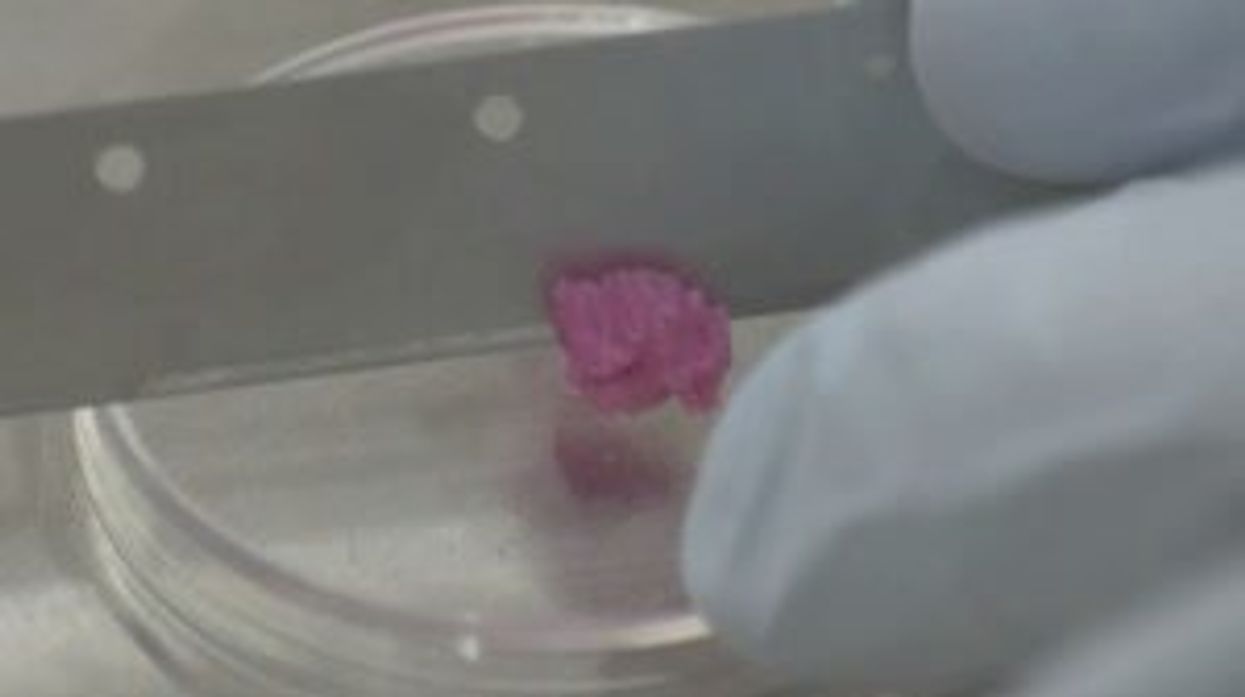Ellie Abraham
Feb 20, 2024
Scientists Are Developing a Way to Lab Grow Wagyu Steak to Save …
ZMG - Amaze Lab / VideoElephant
Experts have been able to create lab-grown testicles and it is hoped they will be able to answer some unknowns about male fertility.
From diamonds to brain tissue, scientists are increasingly able to grow structures in a lab outside their usual habitat.
Tiny artificial testicles are the latest to have been created in a laboratory setting, with hopes that they could help explain male infertility. In the United States, around one in 12 men of reproductive age have experienced infertility issues, but very little is known about the actual cause of it.
Nitzan Gonen, a senior lecturer at the Goodman Faculty of Life Sciences and the Institute of Nanotechnology and Advanced Materials at Bar-Ilan University in Israel is one of the experts behind a study about the successful tiny artificial organs called organoids (small artificially grown masses of cells) which resemble the tubular structures of a natural testicle.
They were created using immature testicular cells from newborn mice which were maintained in a lab for nine weeks. The study explained they generated “tubule-like structures and cellular organization resembling that of the in vivo testis.”
Gonen explained: “Artificial testicles are a promising model for basic research on testicle development and function, which can be translated into therapeutic applications for disorders of sexual development and infertility.”
While the organoids were made from mice cells, they hope that in the future they may be able to use human cells, to gain an even better understanding.
The study read: “In this study we developed testicular organoids from mice, but it is highly possible that similar settings could be applied to generate testicular organoids from pre-pubertal boys.”
The authors note that one in three pre-pubertal boys who have chemotherapy and radiotherapy for cancer become infertile, so research could be used to determine if there is a way to address that figure.
Sign up for our free indy100 weekly newsletter
How to join the indy100's free WhatsApp channel
Have your say in our news democracy. Click the upvote icon at the top of the page to help raise this article through the indy100 rankings
Top 100
The Conversation (0)














